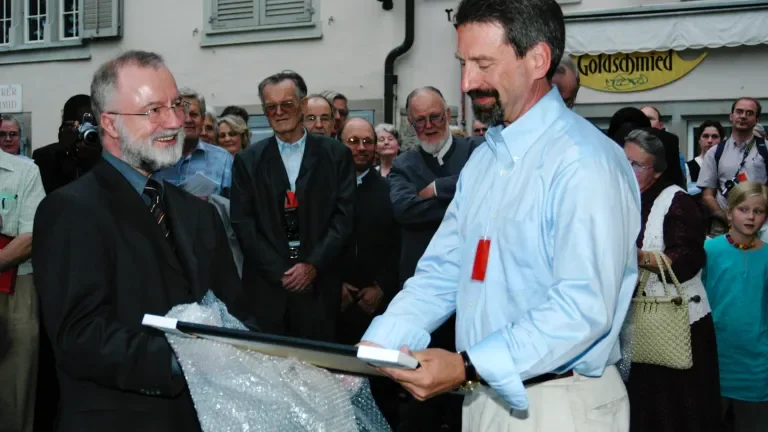For almost 300 years, anabaptist communities in Switzerland were persecuted, suppressed and expelled. Tolerance was only granted in the 19th century.
But when the descendants of the expelled Anabaptists began to travel to Switzerland they still didn't feel welcome. in 1952, the Zurich City Council refused to allow the Mennonites a memorial plaque on the Limmat river for Felix Manz and the first Anabaptist leaders who were drowned there during the time of the Reformation. Real "steps towards reconciliation" only followed at the end of the century.
Steps to Reconciliation
The congress of the Winterthur-based Schleife Foundation "Heile unser Land" (Heal Our Land) in 2003 was an important step towards a new relationship between Reformed and Anabaptist believers. Reformed pastors washed the feet of Anabaptist guests. in 2004, the Zurich Reformed church invited Mennonites and Amish to a day of fellowship and reconciliation. In the evening of 26 June, a memorial plaque was ceremoniously unveiled on the Limmat with the participation of representatives both of church and state.
Ruedi Reich, president of the Reformed church council, read a statement of regret in the Grossmünster cathedral on that day. It states: "The persecuted do not forget their history, the persecutors by contrast would prefer to do so. We - representatives of the Reformed State Church of the Canton of Zurich - acknowledge that our church has largely suppressed the story of the persecution of the Anabaptists."
The willingness of the Reformed church declared in the confession is all the more important: "It is time to accept the history of the Anabaptist movement as part of our own, to learn from the Anabaptist tradition and to strengthen our mutual testimony through dialogue."
The two churches have a common heritage from the Reformation, which they have developed and lived out differently. It is beneficial for both sides to learn from the strengths of the other church.
The Anabaptist Welcome Campaign serves this goal: friendships should develop through personal encounters. We are also planning regional events in German-speaking Switzerland that serve to deepen the relationship.
